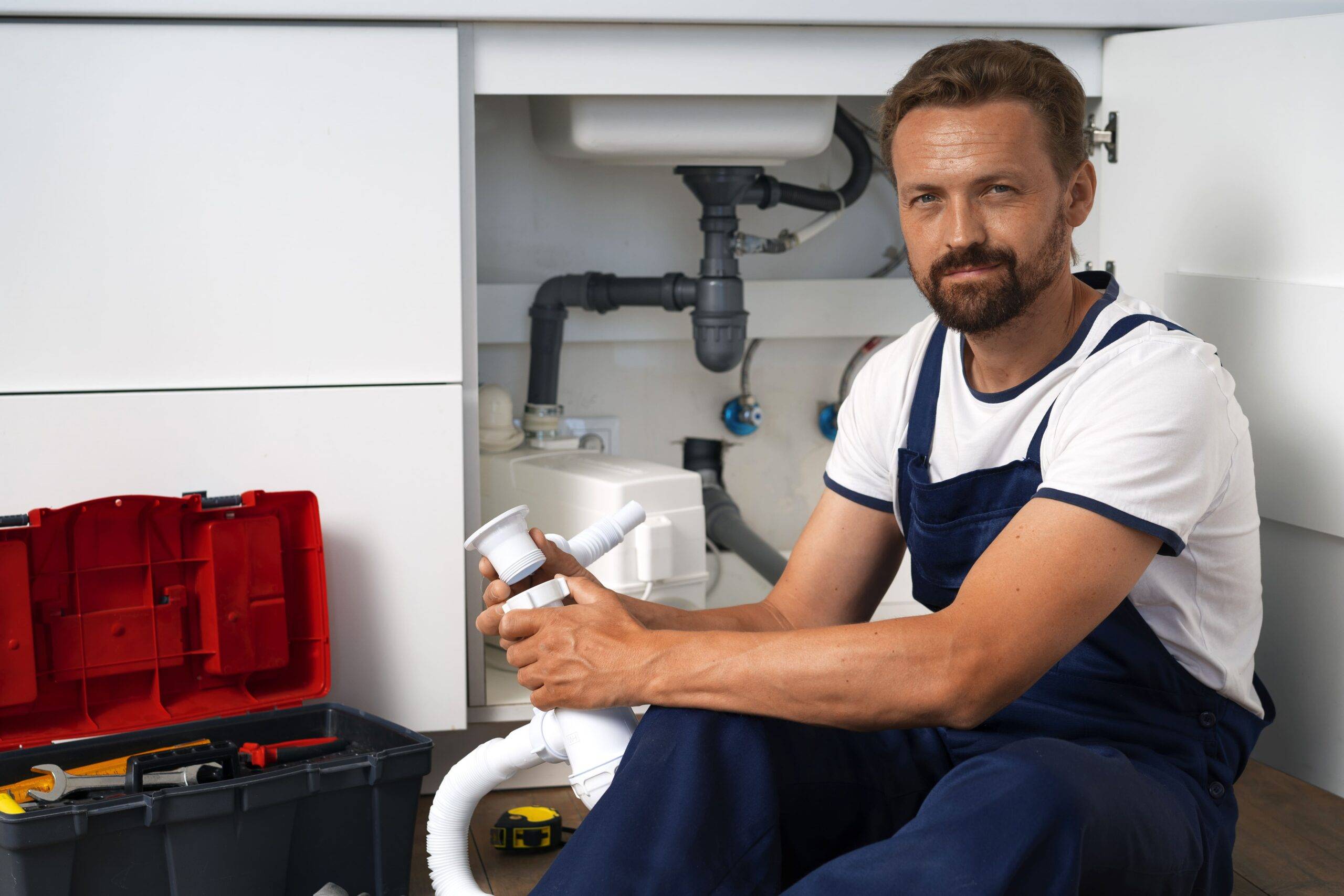Residential vs. Commercial Plumbing: What’s the Difference?
We don’t usually think about plumbing until it stops working. Whether it’s a leaking faucet at home or a blocked drain in a large office building, it’s the plumber we call in to fix it. But while the job title might be the same, the work involved can be drastically different. Residential and commercial plumbing each come with their own sets of systems, challenges, tools, and expectations.
If you’ve ever wondered whether it matters what kind of plumber you call, the answer is yes—it definitely does. Here’s a breakdown of the key differences between residential and commercial plumbing so you can better understand what’s going on behind the walls and beneath the floors of your space.
1. The Scale of the System
One of the main differences between residential and commercial plumbing is the size of the system. Residential plumbing is meant for single homes, small apartments, and flats.. These spaces typically have simple water and drainage systems—think a few sinks, a kitchen, a bathroom or two, and maybe a laundry area. The volume of water used is low, and the plumbing layout is straightforward.
Commercial plumbing, on the other hand, involves large-scale systems that need to support dozens—sometimes hundreds or even thousands—of users every day. Malls, schools, hospitals, and office complexes require plumbing that runs across multiple floors and sections, serving bathrooms, cafeterias, kitchens, fire safety systems, and more. Managing these systems requires more planning, design, and specialized handling.
2. Type of Fixtures and Equipment
The fixtures you’ll find in residential plumbing are familiar and basic—home-use faucets, shower heads, bathtubs, water heaters, and toilets. They’re usually chosen for design, comfort, and personal use.
In contrast, commercial plumbing uses heavy-duty, industrial-grade fixtures. Think of high-capacity water heaters, pressurized pipes, commercial toilets, grease traps in restaurant kitchens, and advanced waste removal systems. These fixtures are designed to withstand frequent, high-volume use without failure.
Because of this, commercial plumbers often require advanced tools and equipment to install, maintain, and repair such fixtures, while residential plumbers typically rely on standard, home-repair tools.
3. Regulations and Compliance
It deals with plumbing systems in homes, small apartments, and private residences. Commercial spaces have to meet strict building codes, safety standards, and health regulations—especially in places like hospitals, food service establishments, and public facilities. Failing to meet these requirements can lead to fines, legal trouble, or even a shutdown.
Residential plumbing is also regulated, but it’s generally more relaxed and focuses on occupant safety rather than mass compliance. As a homeowner, you’re rarely involved in code enforcement unless you’re doing major renovations or building from scratch. Commercial plumbers need to be well-versed not only in general plumbing but also in the local codes, permit requirements, and inspection protocols that vary from one city or state to another.
4. Frequency of Use and Maintenance
Another important distinction lies in the usage pattern. A residential plumbing system is used by a limited number of people daily. That means wear and tear happens at a slower pace, and maintenance can often be handled with annual or bi-annual checkups.Commercial plumbing systems are always under pressure, both in how they work and in how they’re maintained.Multiple bathrooms, kitchens, and water fixtures get used all day, every day, by employees, customers, or tenants. This leads to more frequent breakdowns and the need for ongoing maintenance. For commercial buildings, scheduled servicing is not a luxury—it’s a necessity.
Moreover, commercial buildings often require emergency support for plumbing issues that could affect business operations. Burst pipes or major clogs can lead to revenue loss, so quick solutions and expert handling are vital.
5. Complexity of Repairs
Repairs in a home are usually quick and manageable. Replacing a faulty tap or fixing a leak under the sink rarely requires more than one visit.Commercial plumbing repairs can be a different story. Imagine trying to repair a water line in a 10-story office building without disrupting daily operations. Or managing plumbing for a hospital where hygiene and water access are critical. These situations need careful coordination, experienced technicians, and sometimes, after-hours or weekend work to prevent inconvenience.
Commercial plumbers often work in teams and use planning documents or blueprints to diagnose issues. They must also consider HVAC, fire safety systems, and interconnected utility lines during any repair.
6. Costs Involved
Commercial plumbing is bigger and more complex, so it usually costs more.Everything—from installation and maintenance to emergency repairs—requires more manpower, time, and specialized materials.
Residential plumbing, being simpler and smaller in scope, usually costs less. Most homeowners can get a free quote and have a plumber fix the issue within a day or two without breaking the bank.In both cases, pricing transparency and reliable service are key—but the budget, billing models, and even service contracts can differ vastly between the two.
Final Thoughts
Plumbing is a behind-the-scenes hero in both homes and commercial spaces. While the basic function remains the same—keeping clean water flowing and waste water out—the demands placed on residential and commercial systems are completely different. Knowing this difference can help you hire the right expert for the job and avoid unnecessary delays or damage.
So, the next time you need plumbing assistance, ask yourself: Is this a simple household issue, or does it involve a larger, more complex system? Because choosing the right type of plumber isn’t just about solving today’s problem—it’s about ensuring long-term efficiency, safety, and peace of mind.

